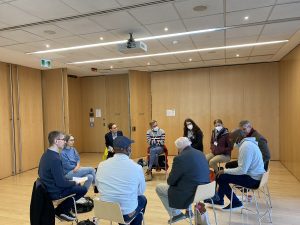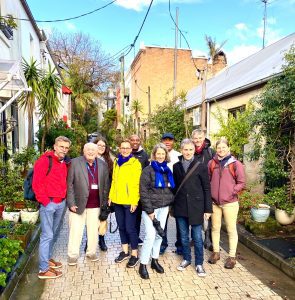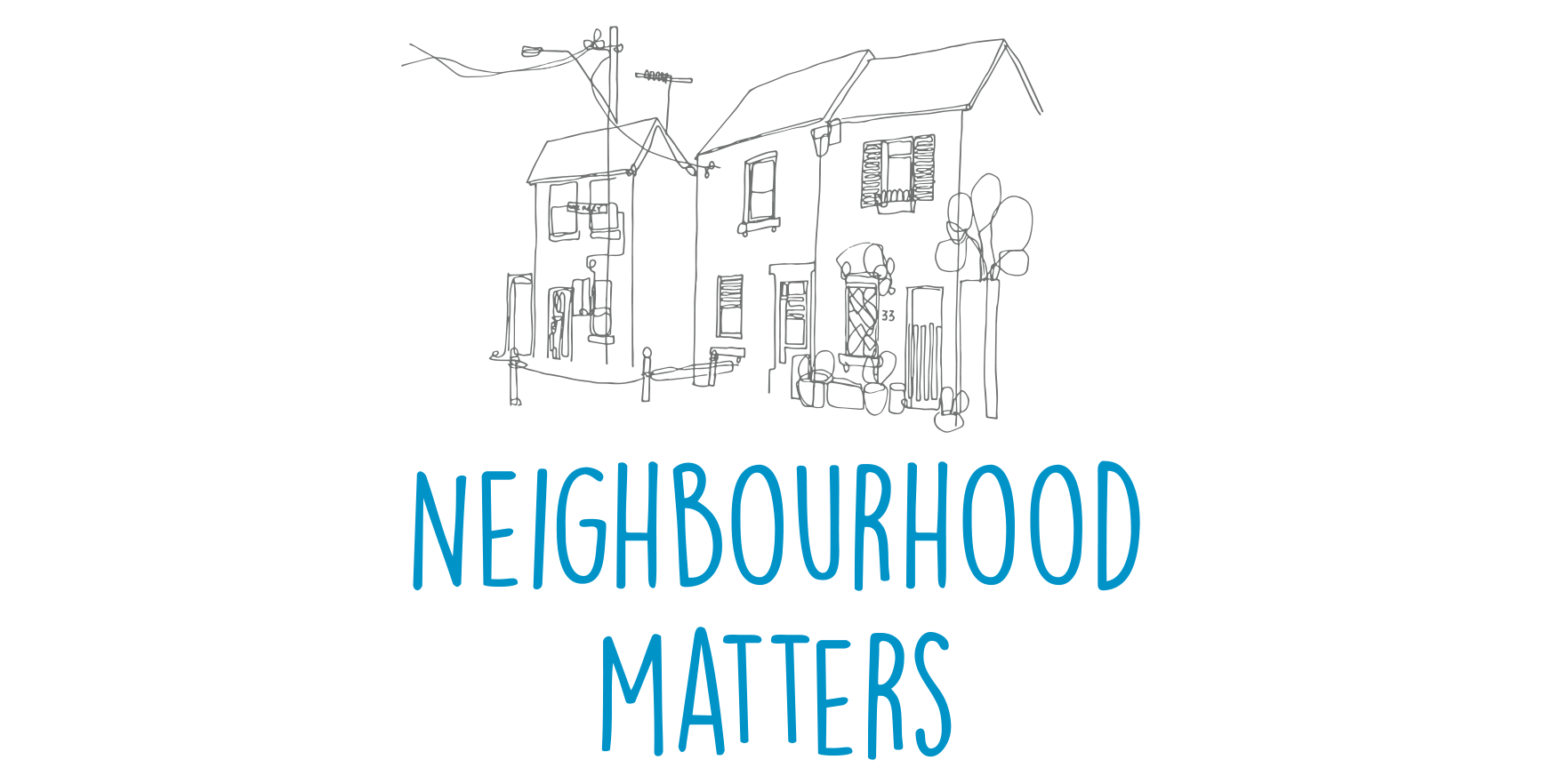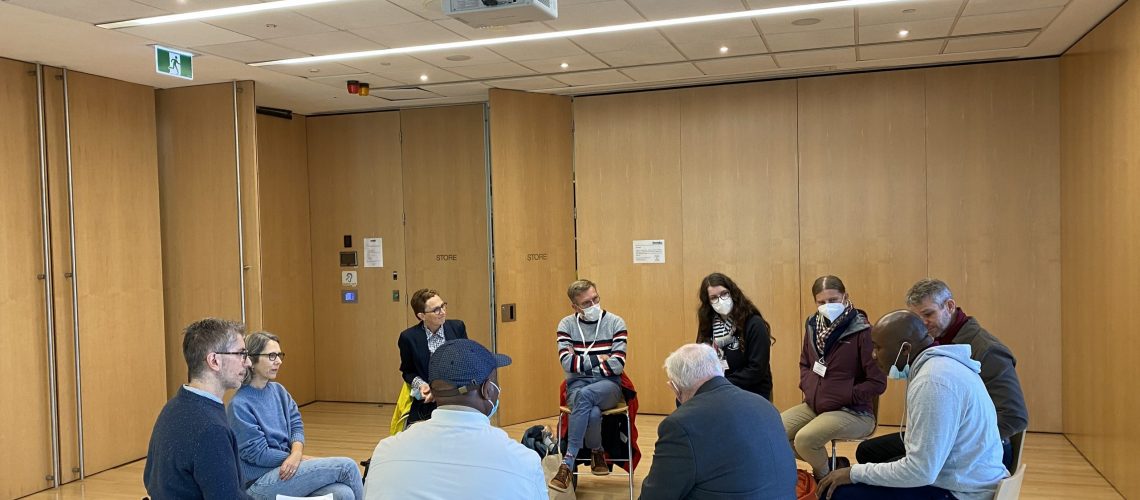
Neighbourhood Matters recently hosted a group of people who were in Sydney for the International Association for Mission Studies. We took them on a walk around Surry Hills and shared with them about our work. There were people from Nigeria, Germany, The Netherlands, New Zealand and the USA. What we all had in common is that we are practitioners in our churches and neighbourhoods and that we desire to see more churches connect with their communities.
We shared about our work in Surry Hills in connecting with people, establishing projects in the community and working with local partners for the good of the community. We also shared about our work in starting and facilitating groups where people meet for discussion around spirituality, ethics and deeper meaning-of-life issues.
We found that we had a lot in common with each other and that we are all asking the same questions about the church: How can the church see itself as one part of the ecology of the neighbourhood? How do we discern what God is up to in the community where we are placed? How do we see place as important? Why is it that the church seems to be answering questions that people are not asking? How can the church partner with more residents, organisations and institutions in the community?

At a time when the church is in decline and more people are instead connecting with nature and indigenous spiritualities and looking for alternative places to find community, what does the church have to offer? This is not a question of becoming “relevant” or changing our essential message of love, truth, justice and grace, but instead about becoming more integrated in our community and embodying that message where we live. It sounds easy but, in a context where people are sceptical about the church and where the church has become more insular in many ways, it can become a daily uphill climb to do what seems so simple.
We all recognised this as we continued in our discussions. But we also agreed that people today are looking for meaning. If we listen to people, we discover that many have had either bad or difficult experiences with the church, which makes them hesitant to be involved in anything religious. If we listen to people, we hear our Christian friends confessing they marked “not religious” on the recent Census but not telling anyone for fear of being ostracised. If we listen to people, we learn just what they mean by saying they are “spiritual not religious”. If we listen to people, we hear what they love about connecting with nature and other communities. People are searching for meaning in this messed-up world. Will the church connect with them or will it become more isolated in a context where the church has already lost its influence?

